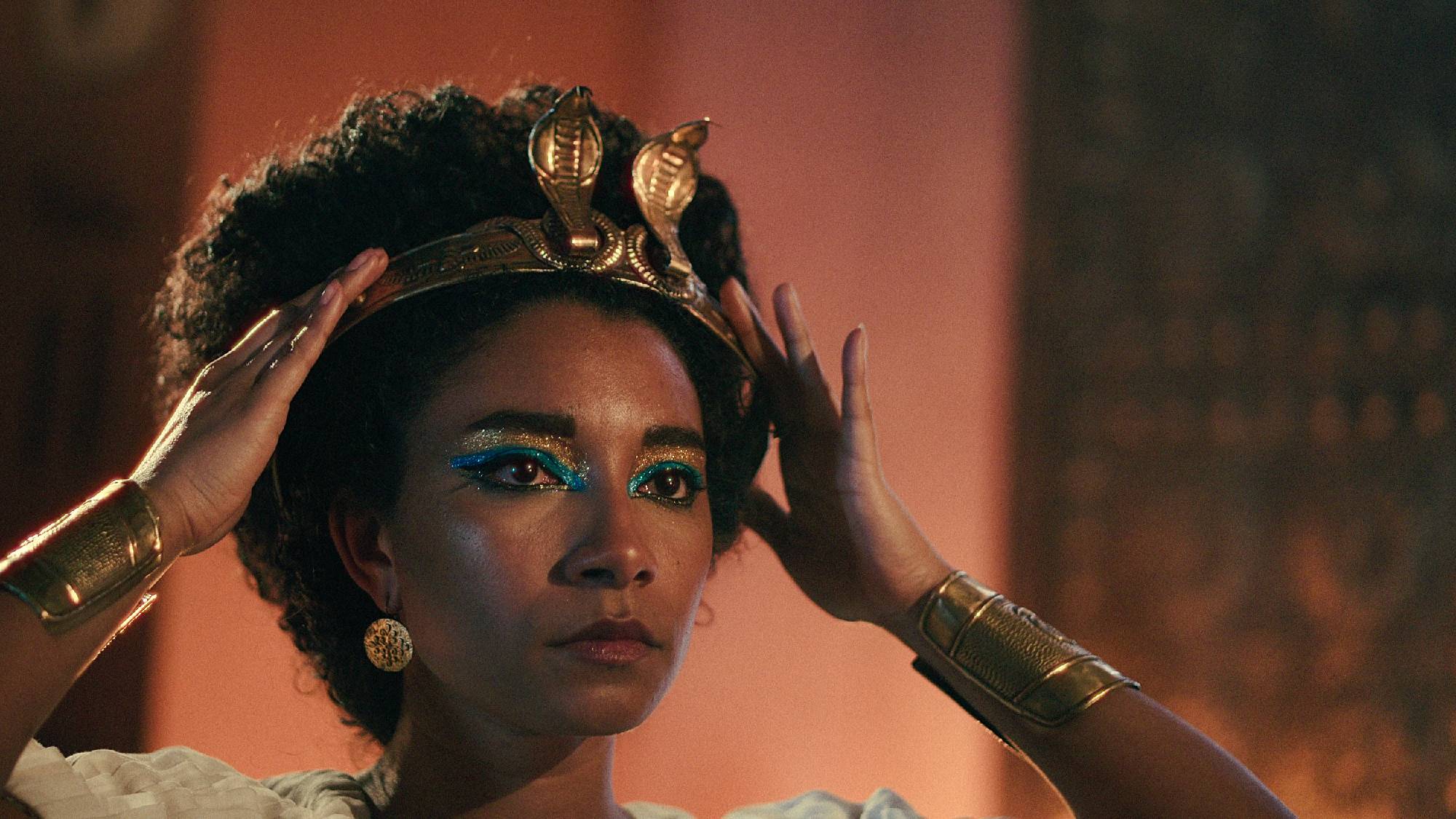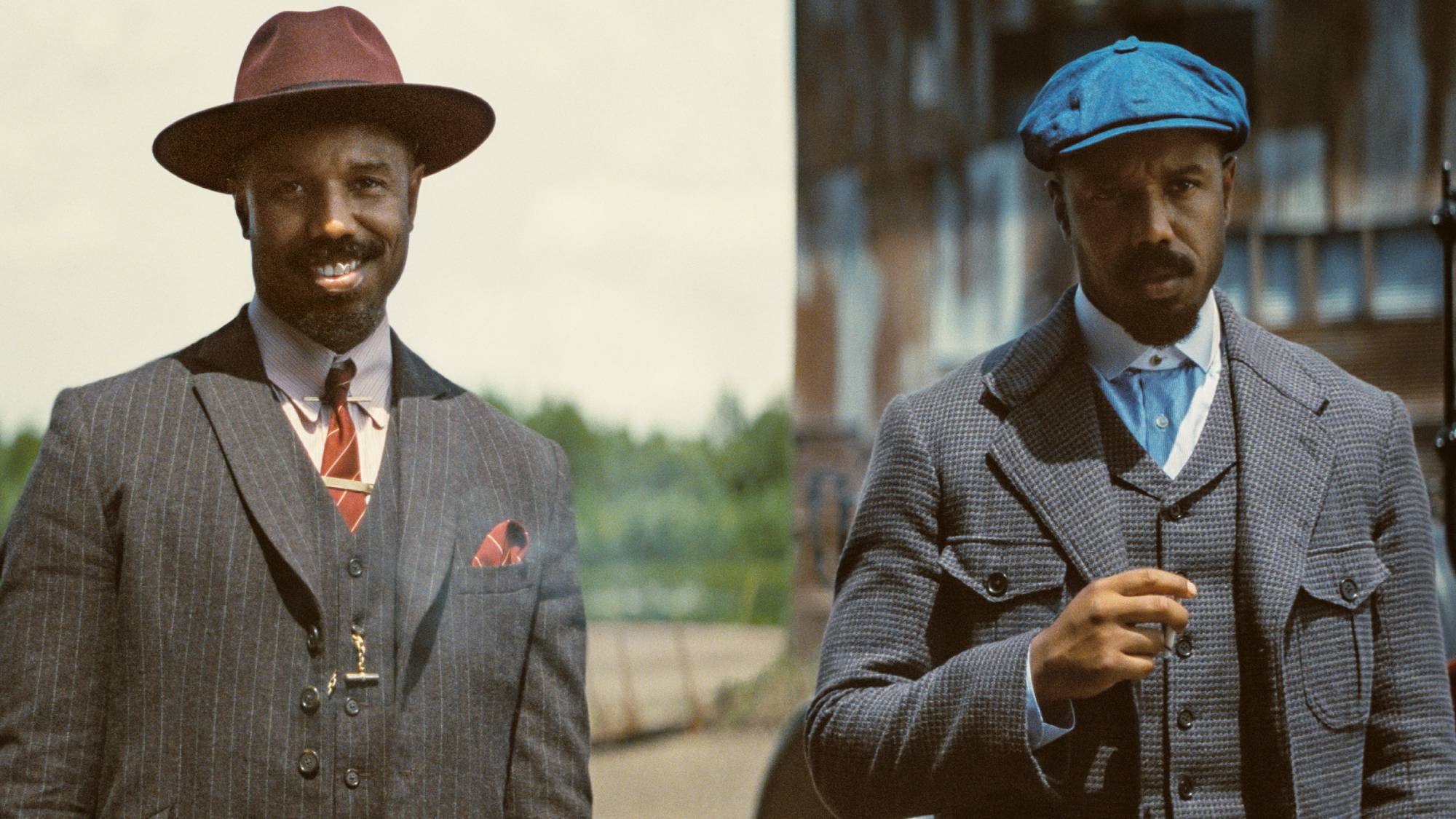Viewers hit Netflix’s Queen Cleopatra with wildly low 2% on Rotten Tomatoes — here’s why
Netflix’s new docuseries has been accused of misrepresenting historical facts

Netflix is no stranger to poorly-received shows. Several of the streamer’s original series have drawn unflattering reviews and an underwhelming response from viewers. But the initial reaction to Netflix’s new Queen Cleopatra docuseries has been vitriolic, to say the least.
At the time of writing, the four-episode historical drama has an audience score of just 2% on Rotten Tomatoes, and its early critics score isn’t much better at just 10%. While it’s had few write-ups from professional critics, the audience score comes from more than 5,000 ratings suggesting that many Netflix subscribers are far from impressed with the show. And RT isn’t an outliner either; over on IMDb, it’s rated just 1.0/10 from more than 48,000 total scores.
So, exactly why has Queen Cleopatra earned such a strong negative reception from viewers? Let’s delve into the matter to explain why this Netflix original is likely to be one of the most controversial shows of 2023.
What is Queen Cleopatra about?
Queen Cleopatra is a new four-part drama that focuses on the life and reign of Queen Cleopatra of Egypt. The show explores her youth and her tumultuous reign of more than two decades, from 51 BC until her death in 30 BC by suicide.
British actress Adele James plays the eponymous role, with Craig Russell, Andira Crichlow, Laya Lewis and John Patridge (playing Julius Caesar no less) also among the cast. Jade Pinkett Smith serves as an unseen narrator across the series and is the connection between the historical dramatization of Cleopatra’s life and the talking head interview segments.
See, Queen Cleopatra is not just a historical drama, it’s also part documentary. Amongst the recreations of Cleopatra’s life are segments where academic scholars give greater context to events. The show appears to be aiming to both entertain and inform viewers.
Why is Queen Cleopatra so controversial?
The controversy surrounding Queen Cleopatra primarily involves the casting of Adele James in the lead role and the fact Netflix is labeling and marketing it as part documentary.
Sign up to get the BEST of Tom's Guide direct to your inbox.
Get instant access to breaking news, the hottest reviews, great deals and helpful tips.
Prior to its release, Netflix was accused of misrepresenting historical facts by casting James, an actress of mixed heritage, in the starring role. In fact, the backlash in Egypt was so intense that the head of the country’s Supreme Antiquities Council, Mostafa Waziri, released a statement branding the show “a falsification of Egyptian history."
While Netflix argued that “[Cleopatra’s] ethnicity is not the focus" of the show and James herself advised those unhappy with her casting not to watch the show on Twitter, the online debate persisted and has now seemingly increased in voracity in the wake of the show’s premiere on Netflix last week (May 10).
In fact, Cleopatra’s heritage continues to be the subject of much historical speculation and debate. The identity of her mother remains unknown, leading some historians to suggest she could have been an indigenous Egyptian or even from somewhere else in Africa. The famous historical figure has previously been played by Vivien Leigh, Claudette Colbert and Elizabeth Taylor without any significant controversy.
Speaking on Steph’s Packed Lunch podcast last week, James commented again on the social media firestorm surrounding her casting. “Yes, we don't know where her mother was from or her paternal grandmother, but also the show is about so much more than the question mark over her race,” said James.
“If you watch it is a very small part of the conversation really, this is about the fullness of who this woman was and she was a human being and she shouldn't be reduced to her race any more than I should or anybody should.”
During the podcast, James also called the abuse she had received over her involvement in the show “fundamentally racist.”
What do critics say about Queen Cleopatra?
Putting aside the controversies discussed above, Netflix’s Queen Cleopatra hasn’t received a sparkling reception from critics either. Camilla Long of The Times of London called the docudrama a “patchy sub-Game of Thrones cosplay interwoven with academics you’ve never heard of.” Ouch.
Meanwhile, Anita Singh of The Daily Telegraph declared it “too soapy for serious history fans, and not enough of a soap for viewers who like juicy historical dramas.” Singh suggests that Queen Cleopatra doesn’t really seem to know who it’s aimed at with its blended approach to telling the historical figure's story.
Joel Keller of Decider was complimentary towards James saying the actress does “a good job” but was less impressed by the rest of the cast. Meanwhile, in a scathing review for The Indian Express, Rohan Naahar said, “Netflix’s Queen Cleopatra tells the legendary monarch’s tale with all the dramatic heft of a Wikipedia article."
Should you stream Queen Cleopatra on Netflix?
It’s hard to deny that at least some of the social media backlash surrounding Queen Cleopatra is in bad faith. And while the accusations of “blackwashing” may be unfair, the more concerning problem for Netflix is that the show itself just isn’t very good if its critical reception is any indication.
If you’re a history buff who can tolerate the show taking a few liberties with the truth, you might find something to enjoy in Queen Cleopatra. But unfortunately, it seems this Netflix docudrama should have picked a lane and stuck with it. Trying to be both a sword and sandals epic as well as a historical documentary seems to have led to a confused final product that doesn’t do justice to the remarkable legacy of the Egyptian ruler.
More from Tom's Guide

Rory is an Entertainment Editor at Tom’s Guide based in the UK. He covers a wide range of topics but with a particular focus on gaming and streaming. When he’s not reviewing the latest games, searching for hidden gems on Netflix, or writing hot takes on new gaming hardware, TV shows and movies, he can be found attending music festivals and getting far too emotionally invested in his favorite football team.
